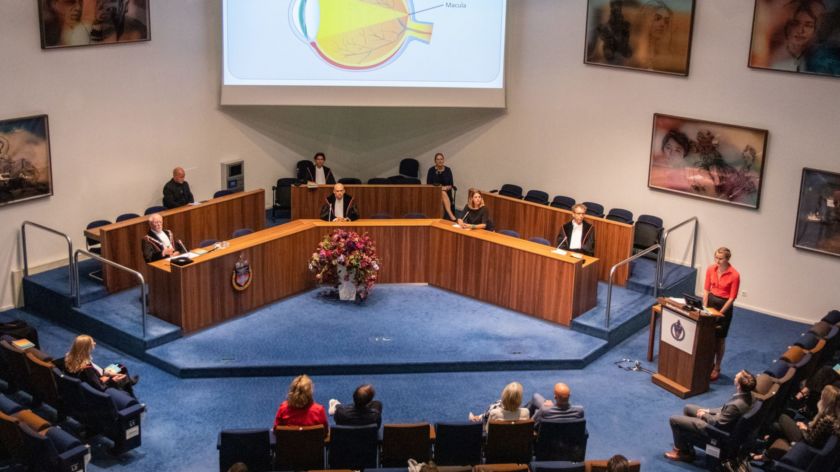-
 © Rein Wieringa
© Rein Wieringa
In 2020 and 2021 far fewer people earned their doctorate at Radboud University. In 2019, 447 doctorate degrees were awarded, but that number dropped to 391 the following year and to 395 last year, a decrease of 10 percent.
It’s the first time since 2015 that, for two years in a row, there was such a small number of doctorate degrees awarded in Nijmegen. In the five years before the COVID-19 pandemic there was actually an increasing trend, except for a dip in 2018.
The figures are in line with the national situation. In 2020, 10 percent fewer doctorate degrees were awarded in the Netherlands than in 2019, according to figures by Statistics Netherlands (CBS). This breaks the growing trend of the twenty years before, which was a growth of almost 4 percent per year. National figures of 2020 have not been published yet.
Doctorate degrees yield Radboud University tens of millions of euros each year. Each dissertation brings in tens of thousands of euros for universities, in 2018 this was more than 77.000 euros. The decrease means Nijmegen misses out on millions of euros.
Corona delay
COVID-19 seems to be the most plausible explanation for the low figures, but nobody can confirm this for sure. ‘Delays because of COVID-19 will surely have an effect,’ says Marc Vervuurt, vice-president of PNN (an organisation that represents the interests of PhD candidates in the Netherlands) and PhD candidate at RadboudUMC. A lot of research came to a halt or took longer than expected. PhD candidates who suffered because of this could get their contract extended by six months. This also meant the end of their doctoral program would be delayed.
How many doctoral programs were delayed exactly and for how long, is hard to say. There are no exact figures, according to policy officer Steffie Hampsink. How long a doctoral program took, is calculated only after a PhD candidate has successfully defended their dissertation.
Stress
Still, there are probably other causes that play a role besides delayed experiments, thinks Vervuurt. ‘Mental issues, for example.’ Scientists have been dealing with an increased workload for years and the pandemic has only been adding to the amount of stress, according to a recent research report by The Young Academy. PhD candidates also – especially during lockdowns – delay receiving their doctorate degree until a moment where more is possible physically, such as a bigger audience in the auditorium or being able to have a party. Vervuurt: ‘Here and there I hear that some PhD candidates delay getting their degree by months.’
A lack of capacity in the auditorium – which would lead to a mountain of PhD defences still to be held – is currently not the case, says Jacqueline Berns of the Registrar’s Office. During the first lockdown, in the spring of 2020, most PhD defences were postponed but still took place at a later time, partly online. Berns: ‘PhD defences that were delayed were almost all caught up in 2020.’



